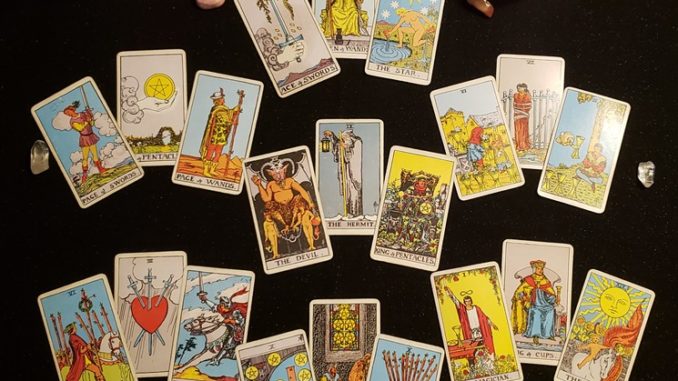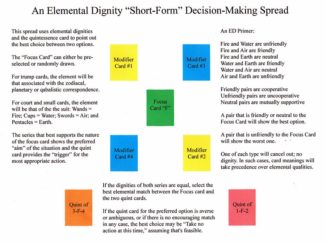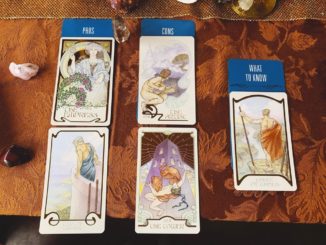
The tale of tarot cards started roughly the 1400’s, a century next from cards were presented in Europe initiating with the developing villages in Italy. The change of Tarot as we know it nowadays has a variety of accounts and folklore. The cryptic characteristics of tarot cards charms teachers, researchers and etherealists. Tarot cards were initially used as fun tokens like regular decks, a variety of from what we conceive of tarot cards nowadays, although a connections to Tarot as a series of devil cards was made in 1450. The enchantment of tarot cards started in Egypt, which is the equal civilization that supported astrology.
Tarot cards are separated into five divisions: The Major Arcana, The Suit of Wands, The Suit of Coins, The Suit of Cups, and the Suit of Swords. Each card in The Major Arcana has an equivalent face card for every following suit.
The suits themselves have divisions as well. Their interpretations and worth are determined by their statuses as Oudlers/Trulls, Kings, Queens, Cavaliers, Jacks, and Others. Oudlers generally have the same point and value as Kings, while the rest from Queens to Jacks are worth one point less than their predecessors.
More than the value of cards, the English-speaking world gives significantly more value to the interpretations of the cards.
Every card has a different meaning, depending upon what the card’s suit is, and if it is part of the Minor or Major Arcana. All of the Tarot cards are numbered, so each card serves a reader with a specific numerological value which can be interpreted during divination practices. Furthermore, the meanings of the cards evolve depending upon where the cards appear in a reading, as well as what kind of card layout is used. The cards are read both singularly and together to get a complete reading. The most popular layouts are the three card spread and the Celtic Cross.
Face-to-face tarot card readings are the most popular types of readings because they allow the person to select the cards themselves. The reader then interprets what cards are chosen. This has more market appeal due to its interactive nature. In different parts of the world, there are several street readers who do readings for passers-by. There are also people who go to homes in order to read tarot card meanings for other people. England rates for home readings are at £12.50 per person or around that area.
Tarot card purists believe that these face-to-face readings are the original type of readings. This leads them to believe that face-to-face readings are a lot truer than other types of tarot card readings like e-mail or telephone readings. Then again, these arguments are astrological in nature and cannot be found to be true or accurate.
Alternative tarot card reading methods include phone and online readings. While there are free Internet sites to read your fortunes, they are only for show or offered as a gimmick. On the other hand, professional tarot card readers offering their services over the phone can cost about £5.00 per reading. Card reading over the phone offers a different approach to commercial tarot card reading, since the customer can have a hotline to know his fortunes on demand. Card reading allows people to have their fortunes checked every morning, which is both convenient and lifestyle altering.
Tarot cards have a long history, both as a simple card game and as a tool for divination. The modern usage of these cards is purely esoteric. If you are interested, you should keep in mind that tarot cards are only as helpful as the reader is perceptive, and that while you may leave with some clarifications of your own thoughts, more than that is unlikely.
Proudly WWW.PONIREVO.COM



